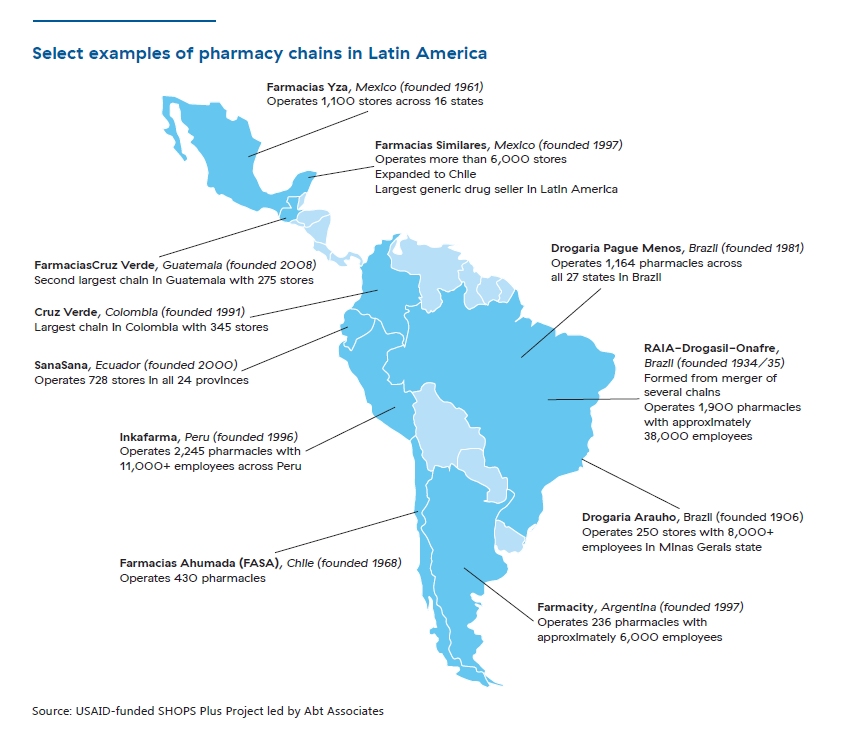Understanding the Growth of Pharmacy Chains in Latin America
Governments and donors around the world are seeking to better leverage private pharmacies to increase access to priority health products, including family planning. As they do so, they have encountered challenges related to quality of products, appropriate counseling, and reporting. In sub- Saharan Africa and Asia, interventions to address these challenges have often been limited in scale due to the fragmentation of the pharmaceutical retail sector in those region. Latin America’s experience with the consolidation of retail outlets into pharmacy chains can inform the efforts of governments and donors to overcome fragmentation-related challenges. Over the past three decades, pharmacy chains have emerged and expanded across the region in countries such as Brazil, Chile, and Mexico. The USAID-funded Sustaining Health Outcomes through the Private Sector (SHOPS) Plus project examined the factors that contributed to the expansion of the chains and their impact on key health areas such as family planning. Understanding how various factors facilitated and limited the growth of pharmacy chains in Latin America, and the subsequent benefits and risks for public health, can help governments and donors capitalize on opportunities emerging in sib-Saharan African and Asia.
Click the infographic to view and save the image
SHOPS Plus
